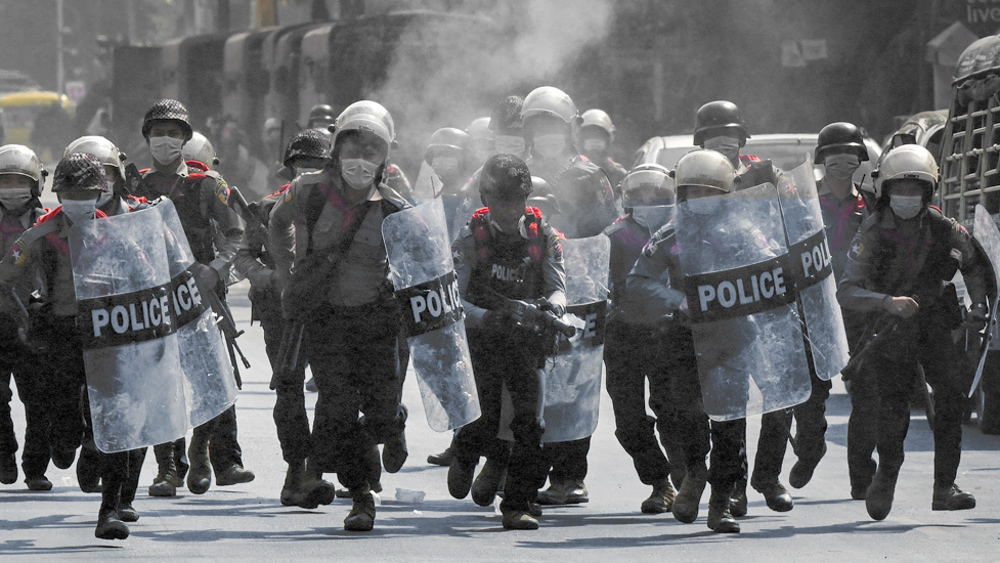Woman shot, dozens detained as Myanmar’s police intensify crackdown on protesters
Police in Myanmar have launched their apparently largest crackdown on anti-coup protesters, three weeks into a tense time that have so far witnessed the death of three people.
In towns and cities, anti-riot officers were deployed from the early hours of Saturday.
The major grievance of the demonstrators is the detention of de facto leader Aung Sun Suu Kyi and several political leaders. They want the elected government of Suu Kyi restored.
The military grabbed power in a coup in early February.
Running for cover from tear gas, clashing with police officers, and getting shot by live rounds: these have been the main themes of street life ever since.
On Saturday, police shot and wounded one woman in the central town of Monwya. Dozens of people were detained.
Three domestic media outlets said earlier that the woman had been shot dead, but an ambulance service official said she was in hospital.
The circumstances of the shooting were sketchy.

In the main city of Yangon, witnesses said crowds had gathered, although police were detaining demonstrators at usual protest sites.
Several journalists were detained. Clashes erupted when more people took to the streets.
“They used water cannon against peaceful protesters – they shouldn’t treat people like that,” Aye Aye Tint told Reuters.
The crowds eventually thinned but police were still chasing people and firing into the air in the late afternoon, witnesses said.
Similar incidents happened in the city of Mandalay and other towns.
In Mandalay, police detained Win Mya Mya, one of two Muslim members of parliament for Suu Kyi’s National League for Democracy (NLD).
Protest organizers have called for another day of public display of outrage on Sunday.
The recent violent incidents came after Myanmar’s envoy in the United Nations appealed for help at the General Assembly on Friday.
Myanmar’s Ambassador Kyaw Moe Tun said he was speaking on behalf of Suu Kyi’s government and that they “need further strongest possible action from the international community to immediately end the military coup.”
The United States, Britain, and others have already called for Suu Kyi’s release and the restoration of the civil government. They have imposed limited sanctions aimed at members of the military and its business links.
Junta leader General Min Aung Hlaing has said authorities have been using minimal force. Nevertheless, at least three protesters have died over the days of turmoil. The army says a policeman was killed in earlier violence.
In the meantime, uncertainty has grown over Suu Kyi’s whereabouts, as NLD officials said on Friday she had been moved from house arrest to an undisclosed location.
Her lawyer also said he had not been granted access to his client ahead of her next hearing on Monday.
Suu Kyi, who spent nearly 15 years under house arrest during military rule, now faces charges of illegally importing six walkie-talkie radios and violating a natural disaster law by breaching coronavirus protocols.
'Powerful strike': IRGC hits US destroyer with ballistic, strategic cruise missiles in Indian Ocean
IRGC: 16th wave of retaliation hit heart of occupied territories; enemy casualties stand at 680
We avenge the innocent until our last breath: Iran's parl. speaker
170 students, teachers martyred in ‘deliberate’ strikes on Iranian schools: Minister
Iran’s air defense systems down six advanced Hermes drones
US defenses overwhelmed by Iran’s drone and missile barrages: WSJ
IRGC says second US THAAD anti-missile unit destroyed
CNN journalists abducted by Israel while reporting on damage from Iranian strikes












 This makes it easy to access the Press TV website
This makes it easy to access the Press TV website